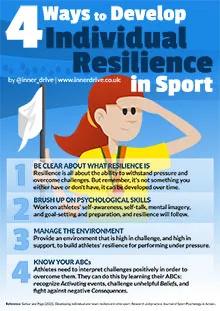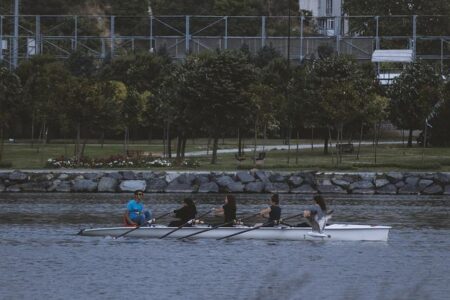Taking regular breaks from competition is essential for maintaining athletic resilience, according to experts at the University of Portsmouth. In a recent analysis, sports psychologists emphasize that stepping back from the pressures of competing allows athletes to recover mentally and physically, ultimately enhancing long-term performance and well-being. This insight challenges the traditional mindset of relentless training and highlights the critical role of rest in sustaining peak athletic form.
The Mental Toll of Continuous Competition Explained by Experts
Experts from the University of Portsmouth emphasize that the relentless pressure of continuous competition can significantly strain an athlete’s mental health. Persistent exposure to high-stakes environments often leads to heightened anxiety, burnout, and deteriorating self-esteem. According to sports psychologists, the competitive grind activates a chronic stress response, which not only impairs performance but also jeopardizes long-term psychological well-being. In many cases, athletes report feelings of isolation and emotional exhaustion as a direct consequence of this unyielding stress cycle.
Signs of mental fatigue among athletes include:
- Reduced motivation and enthusiasm for training
- Increased irritability and mood fluctuations
- Difficulty concentrating during competition
- Sleep disturbances and physical exhaustion
To highlight the impact of mental strain, researchers provided a simple comparison chart of psychological symptoms before and after mandated rest periods:
| Symptom | Before Break | After Break |
|---|---|---|
| Anxiety Levels | High | Moderate |
| Motivation | Low | High |
| Sleep Quality | Poor | Improved |
| Focus | Diminished | Sharpened |
How Strategic Rest Periods Enhance Long-Term Athletic Performance
Strategic rest periods serve as a cornerstone for sustaining athletic excellence over time. By stepping back from the relentless grind of competition, athletes enable their bodies and minds to rebuild, significantly reducing the risk of burnout and injury. Research indicates that intentional breaks contribute to improved muscle recovery, hormonal balance, and mental clarity – essential ingredients for peak performance. A balanced schedule incorporating rest not only preserves physical health but also enhances psychological resilience, fostering a mindset geared towards long-term success rather than short-term gains.
Key benefits of incorporating strategic rest include:
- Enhanced recovery from micro-injuries and fatigue
- Reduction in overtraining syndrome symptoms
- Improved motivation and focus when returning to competition
- Better adaptation to training stimuli and performance gains
| Rest Duration | Effect on Performance | Mental Impact |
|---|---|---|
| 1-3 days | Quick muscle recovery | Reduced stress |
| 1-2 weeks | Improved endurance capacity | Renewed motivation |
| 1 month+ | Prevention of chronic injuries | Long-term psychological resilience |
Practical Break Strategies Recommended by Sports Psychologists
Experts emphasize that effective breaks are not merely time off but intentional periods that allow athletes to reconnect with their mental and physical states. Sports psychologists recommend incorporating mindful breathing exercises and guided visualizations during pauses to reduce anxiety and enhance focus. These techniques help athletes decompress, preventing burnout and promoting long-term resilience.
Additionally, mixing passive and active recovery methods is crucial. For instance, they suggest alternating between low-intensity activities like stretching or yoga and complete rest to sustain energy levels without overwhelming the body. Implementing these strategies consistently can transform breaks from simple downtime to powerful tools for performance enhancement.
- Mindful breathing – reduces cortisol and restores calm
- Guided imagery – reinforces positive performance patterns
- Active recovery – gentle movement to stimulate blood flow
- Complete rest – essential for physical regeneration
| Break Type | Duration | Key Benefit |
|---|---|---|
| Mindful Breathing | 5-10 mins | Stress Reduction |
| Guided Visualization | 10-15 mins | Mental Reset |
| Active Recovery | 15-20 mins | Muscle Relief |
| Complete Rest | Varies | Physical Restoration |
Building Resilience Through Balanced Training and Recovery Practices
Incorporating a well-structured balance between intense training sessions and deliberate recovery phases is pivotal for sustaining long-term athletic performance. Experts emphasize that resilience isn’t solely about pushing limits but equally about knowing when to step back. Adequate rest allows the mind and body to repair, adapt, and strengthen, reducing the likelihood of burnout and injury. For athletes, this balance can manifest in various forms such as active recovery, sleep optimization, and mental rest – each playing an integral role in fostering durability in competitive environments.
Key elements supporting balanced training and recovery include:
- Scheduled rest days to prevent overtraining syndrome
- Incorporation of relaxation techniques like meditation or deep breathing
- Monitoring physical and psychological stress through journals or apps
- Nutrition tailored to support recovery processes
| Training Phase | Focus | Recovery Strategy |
|---|---|---|
| Pre-Competition | Peak intensity | Increased sleep & light active recovery |
| Competition | Performance | Mental relaxation and hydration |
| Post-Competition | Rebuilding | Rest days and psychological decompression |
In Retrospect
In a high-pressure world where athletes constantly push their limits, the insights from the University of Portsmouth’s sports psychologist underscore a crucial truth: stepping back from competition is not a sign of weakness, but a strategic move toward sustained resilience. As athletes and coaches alike seek to optimize performance, embracing well-timed breaks could prove essential in preventing burnout and fostering long-term success. This research adds a vital perspective to the ongoing conversation about mental health and endurance in sports, reminding us that sometimes, the best way forward is a moment of pause.





